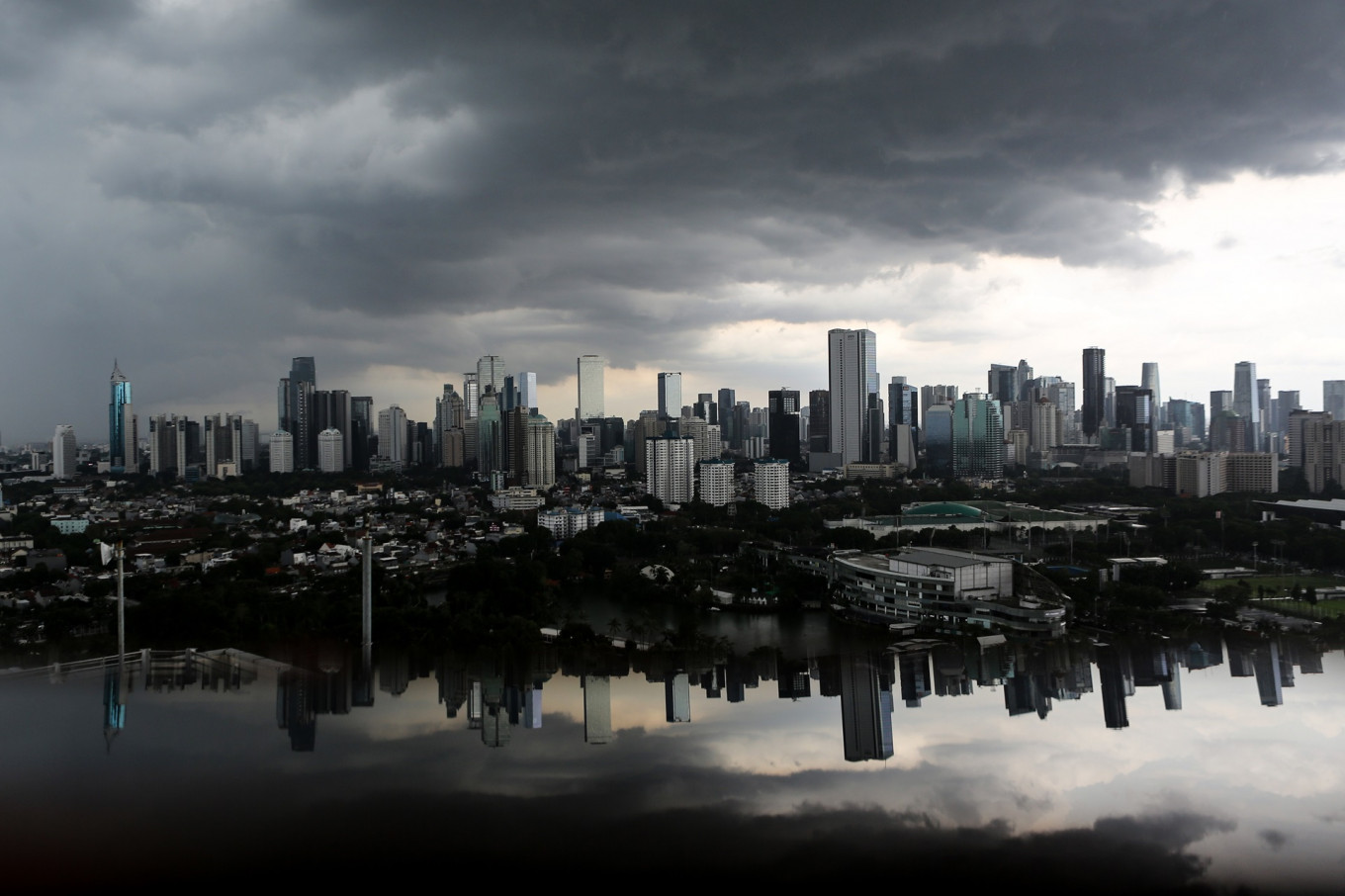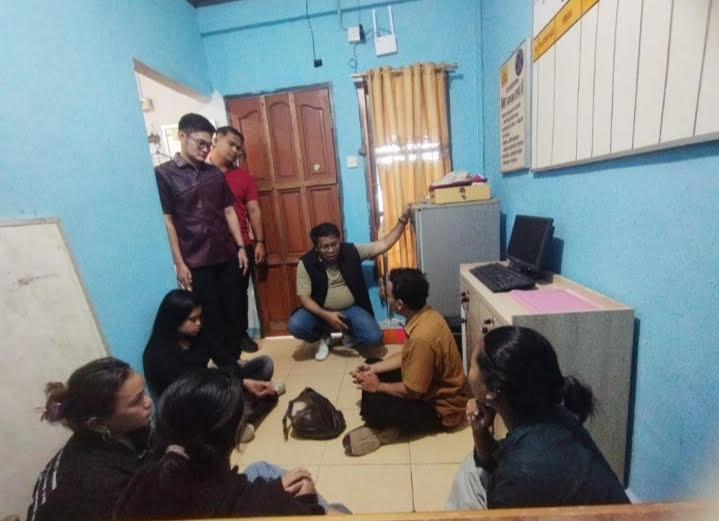Popular Reads
Top Results
Can't find what you're looking for?
View all search resultsPopular Reads
Top Results
Can't find what you're looking for?
View all search resultsJakarta disperses 8 tonnes of salt to lower rainfall intensity
The Jakarta administration has dispersed 8 tonnes of salt during a weather modification operation (OMC) from Dec. 25 to 31, resulting in a 38 percent decrease in rainfall intensity.
Change text size
Gift Premium Articles
to Anyone
 Heavy skies: Thick, black clouds hang over high-rise buildings in Jakarta on Dec. 5, 2024. The Meteorology, Climatology and Geophysics Agency (BMKG) has warned of extreme weather during the Christmas and New Year holidays resulting from La Niña climatic phenomenon, which may cause a 20 to 40 percent increase in rainfall. (Antara/Asprilla Dwi Adha)
Heavy skies: Thick, black clouds hang over high-rise buildings in Jakarta on Dec. 5, 2024. The Meteorology, Climatology and Geophysics Agency (BMKG) has warned of extreme weather during the Christmas and New Year holidays resulting from La Niña climatic phenomenon, which may cause a 20 to 40 percent increase in rainfall. (Antara/Asprilla Dwi Adha)
F
or six days, around eight tonnes of salt, or natrium chloride (NaCl), were dispersed into the sky during a weather modification operation (OMC) to reduce rainfall intensity in the Greater Jakarta area.
"The weather modification operation held from Dec. 25 to 31 has successfully reduced rainfall intensity significantly in the Jakarta area," said the Jakarta Disaster Management Agency (BPBD) head Isnawa Adji in Jakarta on Wednesday, as quoted by kompas.com.
The cloud seeding operation involved 10 flight sorties with a duration of 19 hours and 36 minutes.
Isnawa said that the operation had shown positive results.
This is evidenced by actual rainfall data obtained from the GSMap satellite, which indicates that rainfall in Jakarta during the OMC period ranged from 0 to 40 millimeters per day, with peak rainfall reaching 40 mm per day on Dec. 25.
As a comparison, before the OMC was implemented, rainfall intensity was recorded at 17.8 mm on Dec. 24. During the OMC, the maximum rainfall recorded was 68 mm, with no rainfall exceeding 100 mm.
Analysis results show that the OMC successfully reduced rainfall intensity by 38 percent compared with predictions based on GSMap data, and 28 percent compared with predictions from the Global Forecast System (GFS) against actual rainfall data.
Weather modification operations have been carried out since early December. The Jakarta administration, in collaboration with the Meteorological, Climatological and Geophysical Agency (BMKG), targeted clouds with the potential to bring heavy rainfall.
The operations used cloud seeding techniques to induce rain before the clouds entered Jakarta.
"This weather modification [operation] is carried out at times adjusted to information from BMKG, such as during heavy rainfall intensity in the midst of extreme weather that could cause flooding disasters," Isnawa said, as reported by tempo.co.
According to Isnawa, the OMC is part of the city administration’s commitment to enhancing community resilience and safety in the face of natural disasters. He hoped that this success would pave the way for the future development of more effective weather modification technology.









